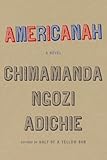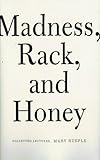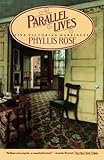The plan was to have an orderly Year in Reading. To finally fill the gaps, dammit, to scale The Magic Mountain and read Hollinghurst properly instead of flipping around for the filthy bits. To read sitting up for a change — like a human adult — rather than burrowing in bedclothes like a vole.
But it was comfort I craved, reliable pleasures: Anne Carson and Elizabeth Hardwick, Sarah Waters’s novels, Virginia Woolf’s diaries, Zadie Smith’s essays, Martin Amis’s reviews (on Malcolm Lowry: “To make a real success of being an alcoholic, to go all the way with it, you need to be other things too: shifty, unfastidious, solipsistic, insecure and indefatigable. Lowry was additionally equipped with an extra-small penis, which really seemed to help.”). I read so much Larkin I worried I’d start sprouting anti-Indian attitudes myself.


 I emerged from the burrow in spring to discover a crop of terrific new books — Mary Ruefle’s collected lectures, Madness, Rack, and Honey; Sonali Deraniyagala’s lacerating memoir, Wave; Chimamanda Ngozi Adichie’s sublime novel, Americanah. Most of my favorites of the year can be found here and here. And despite my indifference toward Victorians and marriage (although I do have a soft spot for wayward Bloomsberries), I fell madly in love with a book called Parallel Lives by the literary critic Phyllis Rose, a study of five Victorian marriages first published in 1984. It fit perfectly in my pocket and went everywhere with me; its proximity soothed me, made me feel very sensible and worldly.
I emerged from the burrow in spring to discover a crop of terrific new books — Mary Ruefle’s collected lectures, Madness, Rack, and Honey; Sonali Deraniyagala’s lacerating memoir, Wave; Chimamanda Ngozi Adichie’s sublime novel, Americanah. Most of my favorites of the year can be found here and here. And despite my indifference toward Victorians and marriage (although I do have a soft spot for wayward Bloomsberries), I fell madly in love with a book called Parallel Lives by the literary critic Phyllis Rose, a study of five Victorian marriages first published in 1984. It fit perfectly in my pocket and went everywhere with me; its proximity soothed me, made me feel very sensible and worldly.
 Taking as her starting point John Stuart Mill’s idea of marriage as “the primary political experience in which most of us engage as adults,” Rose examines the relationships of writers and their spouses including George Eliot and George Henry Llewes, John and Effie Ruskin, Charles Dickens and tragic Catherine Hogarth. She tracks the flow of power over decades — how Thomas Caryle waxed as his once fiery wife waned (until she got her posthumous revenge), how John Stuart Mill exulted at submitting to Harriet Taylor — and how Victorians might have permitted a flexibility in marital arrangements that Americans today can only dream about. It’s gossip of the highest, most instructive caliber, a tart, affectionate treatment of this flimsiest of human inventions.
Taking as her starting point John Stuart Mill’s idea of marriage as “the primary political experience in which most of us engage as adults,” Rose examines the relationships of writers and their spouses including George Eliot and George Henry Llewes, John and Effie Ruskin, Charles Dickens and tragic Catherine Hogarth. She tracks the flow of power over decades — how Thomas Caryle waxed as his once fiery wife waned (until she got her posthumous revenge), how John Stuart Mill exulted at submitting to Harriet Taylor — and how Victorians might have permitted a flexibility in marital arrangements that Americans today can only dream about. It’s gossip of the highest, most instructive caliber, a tart, affectionate treatment of this flimsiest of human inventions.
I’ve gone vole again for the winter. But hope springs, etc. Even Larkin agrees; from “The Trees”: “Yet still the unresting castles thresh / In fullgrown thickness every May. / Last year is dead, they seem to say, / Begin afresh, afresh, afresh.”
More from A Year in Reading 2013
Don’t miss: A Year in Reading 2012, 2011, 2010, 2009, 2008, 2007, 2006, 2005
The good stuff: The Millions’ Notable articles
The motherlode: The Millions’ Books and Reviews
Like what you see? Learn about 5 insanely easy ways to Support The Millions, and follow The Millions on Twitter, Facebook, Tumblr.









